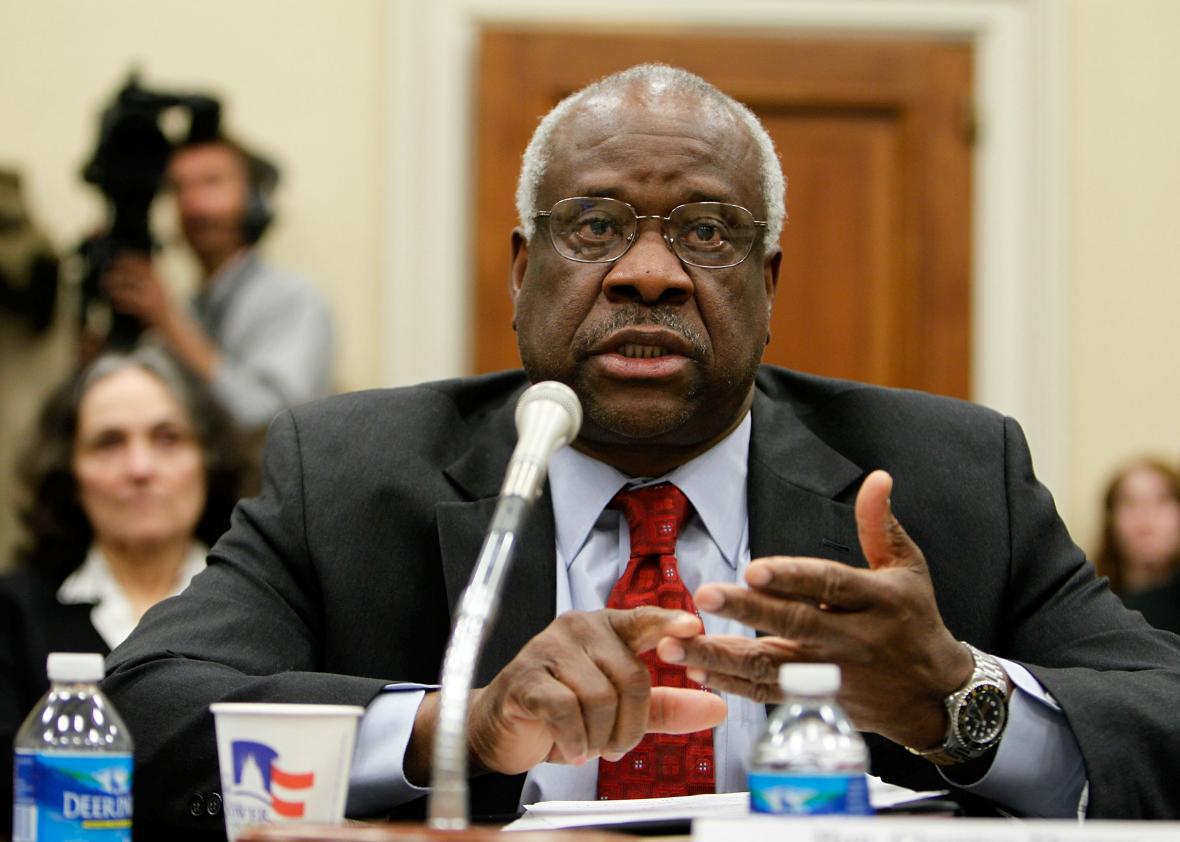On Monday morning, the Supreme Court refused to hear a major Second Amendment case following weeks of delay and speculation. The case arose out of a law in Highland Park, Illinois, which outlawed assault weapons—including the semiautomatic firearms used in many mass shootings like Sandy Hook. A gun enthusiast, aided by the National Rifle Association, challenged the ban, alleging that it violates his right to bear arms protected by the Second and Fourteenth amendments. The 7th Circuit ruled against him, and the justices’ decision to turn away his case means the circuit court’s ruling—along with the ban itself—will stand.
As is his wont, Justice Clarence Thomas penned an opinion, joined only by Justice Antonin Scalia, bemoaning the court’s refusal to hear the challenge—and sharply criticizing the law itself. The 7th Circuit found that the Highland Park ban was constitutional because semiautomatic weapons weren’t available during the ratification of the Second Amendment, weren’t related to the preservation of a “well-regulated militia” and weren’t necessary for self-defense in light of other available weapons. Thomas rejected this analysis, arguing that courts should instead ask whether any given firearm is “commonly used for a lawful purpose.” If so, a ban on that weapon is “highly suspect.” And the semiautomatic weapons outlawed by Highland Park, Thomas claimed, are common enough to gain constitutional protections (citations omitted):
Roughly five million Americans own AR-style semiautomatic rifles. The overwhelming majority of citizens who own and use such rifles do so for lawful purposes, including self-defense and target shooting. Under our precedents, that is all that is needed for citizens to have a right under the Second Amendment to keep such weapons.
As ThinkProgress’ Ian Millhiser notes, this logic—in addition to being made up out of whole cloth by the gun industry’s attorneys—is terrifying, because it could set off a literal race among gun-makers. If firearms gain constitutional protection through their sheer ubiquity, gun makers and sellers would have perverse incentives to make new, more efficient weapons and distribute them quickly. Once the industry had peddled their product to enough gun owners, the weapons themselves would be legally untouchable.
The 7th Circuit, in an opinion by the very conservative Judge Frank Easterbrook, was right to reject this profit-motivated sophistry. And the Supreme Court was right to turn away the case. In his opinion, Thomas attempts to recast the court’s two Second Amendment precedents as guaranteeing gun owners a near-absolute right to own any firearm which “private citizens commonly possess.” But those decisions said only that federal, state, and municipal governments cannot enact a complete ban on handguns used in the home for self-defense. Thomas’ effort to repackage these fairly narrow holdings as broad guarantees of firearm freedom is quite creative. But he appears to have only one other vote for his NRA-sponsored theory—and until he gets more, the Second Amendment will continue to allow for bans on the kind of weapons that enable mass shootings.
